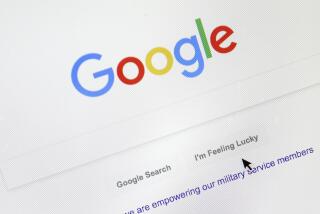Health and Privacy Too
- Share via
The Clinton administration’s plan to create “unique health identifiers”--computer codes that can be used to track every American’s medical history through life--is the product of medical experts who are rightly concerned that too much of today’s health care is based more on tradition than effectiveness. The medical profession does lack basic data about which treatments are most beneficial, but epidemiologists like the Mayo Foundation’s Christopher Chute envision the day when a patient arrives with an unusual combination of diseases and the doctor can tap into a national repository that will turn up patients with the same complex history, along with information about what treatments worked best for them.
But there’s a big downside. Researchers are not the only ones who would be eager to track this medical equivalent of a Social Security number. Insurance companies and potential employers could use the identifiers to discriminate against people with medical histories that predispose them to disease.
That’s why the Department of Health and Human Services, which began hearings on the identifiers this week, should not adopt the system until Congress passes strong legislation to protect the privacy of medical records. A half-dozen bills to do that are languishing in Congress; the controversy over identifiers should prod legislators to give them more scrutiny.
Opponents of health identifiers have argued that government officials could gain access to medical records without seeking patient consent. But insurers, HMOs and employers already can do that and do indeed often do that in today’s system--Big Brother government may be the least of the privacy problems. While federal law protects the privacy of the video titles we rent, no such laws shield individual medical histories. As a result, medical histories are routinely reviewed without patient consent through industry clearinghouses like the Medical Information Bureau, and a recent National Research Council report found that 35% of Fortune 500 companies use individual health records to make employment-related decisions.
Insurers like to use medical records to “cherry-pick,” identifying and then extending insurance to only healthier people. But polls show that most Americans believe in shared risk, in which large numbers of the healthy pay slightly higher rates to subsidize the less healthy. Privacy protections are needed to ensure that the principle of shared risk survives in an increasingly rich information age.
The government’s unique identifiers could be far preferable to the current free-for-all if they were made available only to medical providers and researchers and only after being carefully coded so patients’ identities would be revealed only for purposes of treatment. But until Congress passes genuine privacy protections, health identifiers could do more harm than good.






